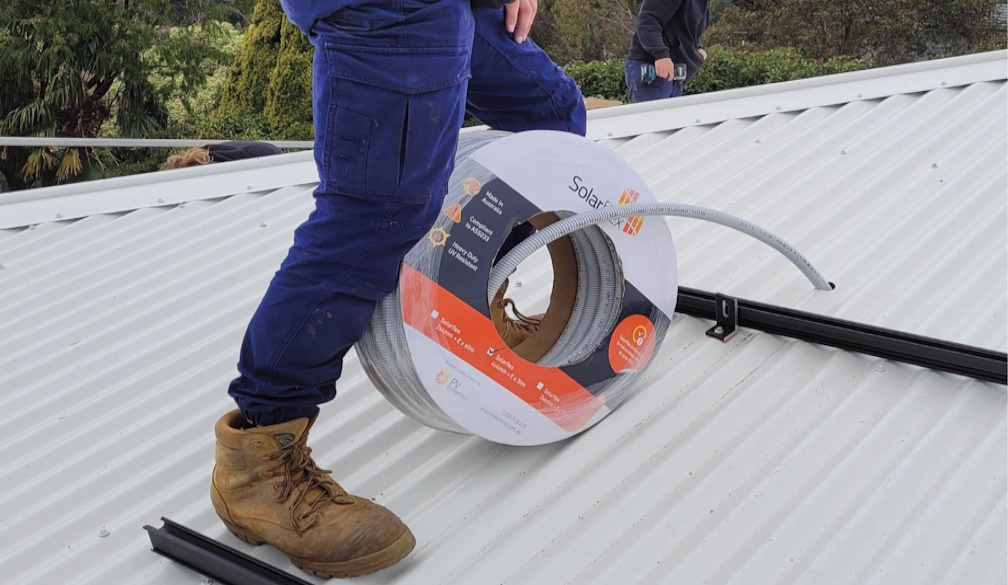What You Need to Know About Solar Panel Cables

Solar panel cables, often referred to as photovoltaic (PV) cables or solar cables, are designed to transmit the electrical power generated by solar panels to the rest of the solar system, such as inverters or battery banks.
These cables are essential for converting the direct current (DC) electricity produced by solar panels into the alternating current (AC) electricity utilised in properties or returned to the power grid.
Solar cables are also specifically engineered to withstand elements such as UV radiation, temperature fluctuations, and mechanical stress over many years of service.
Types of Solar Panel CablesHere is a detailed look at the different types of cables used in solar panel installations and the specific characteristics that make them suitable for various applications.
1. PV Wire (Photovoltaic Wire)These wires are generally approved for direct burial, allowing for underground installation without requiring additional conduit. Standard sizes for PV wire include 10 AWG, 12 AWG, and 14 AWG, with larger gauges designed to carry higher currents.
For instance, in a rooftop solar installation situated in an area with intense sunlight and high temperatures, PV wires are the preferred option because of their high UV resistance and durability.
They come in a range of sizes and configurations to meet diverse system designs and power needs. Typically, they are insulated with materials, such as Cross-linked Polyethylene (XLPE) or Ethylene Propylene Rubber (EPR), which provide excellent resistance to harsh weather conditions.
As an example, copper conductor cables are ideal in a city rooftop solar array due to their superior conductivity and flexibility, facilitating easier routing and installation.
Maintaining Solar Panel Cables
It is a given that you need to clean and maintain your solar panels to ensure that they can absorb as much sunlight as possible. However, did you know that properly maintaining your solar cables is just as important for the optimal performance of your solar panel system?
Some things that can be done to protect your solar cables include:
In general, it is best to schedule a regular maintenance service with trained solar installers. Not only do they know what to look for, but they also have the tools and the techniques to perform repairs if necessary.
Optimise Your Solar Power Performance with Solar Cables
While often overlooked, there is no denying that solar cables play a vital role in the performance of a solar system. They come in various types to suit different setups and environments, so it is important to understand how each type can fit your needs – and to maintain them regularly once they are installed.
To get the most out of your solar cables and your solar panel systems, ensure that you use quality solar components and consult with a licensed solar installer to get personalised recommendations to meet your solar power goals.














